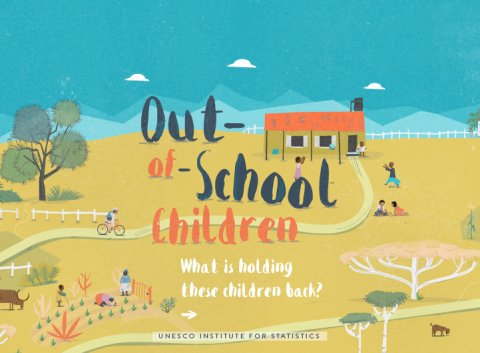Global Report on out-of-school children
“Business as usual strategies based on more teachers, more classrooms and more textbooks are not enough to reach the most disadvantaged children,” said UNESCO Director-General Irina Bokova. “We need targeted interventions to reach the families displaced by conflict, the girls forced to stay home, the children with disabilities and the millions obliged to work. But these policies come at a cost. This report serves as wake-up call to mobilize the resources needed to guarantee basic education for every child, once and for all.”
As pressure mounts to include universal secondary education in the post-2015 global development agenda, the report shows the way forward to break the barriers, often related to poverty, that keep children out of school. Key findings are presented in an interactive data tool illustrating why millions of children are being left behind.
In Nigeria, for example, the data tool shows that two-thirds of children in the poorest households are not in school and almost 90 per cent of them will probably never enrol. In contrast, only 5 per cent of the richest children are out of school and most of them are expected to start in the future.
The report calls for action to invest in better data and demonstrates that reaching the most marginalized may cost more but that better statistics and innovative tools can help governments and donors to spend their education budgets more wisely.

